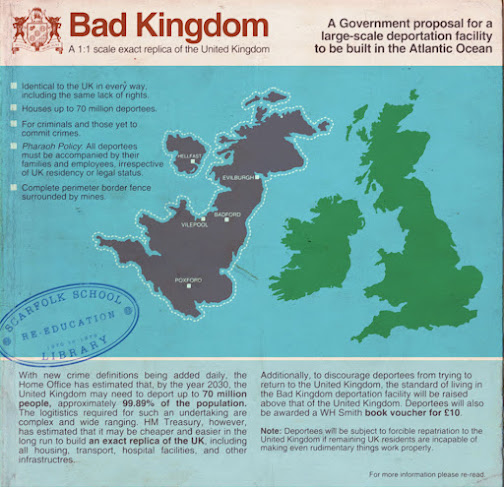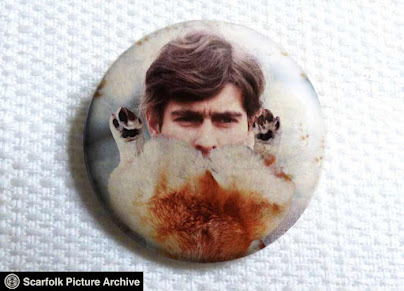In 1972, the government drew up plans to construct a deportation facility off the coast of Ireland that could house as many as 70 million people - the entire population of the UK, if need be. The intention was to make it an exact replica of the United Kingdom and call it Bad Kingdom. Nobody, it seemed, fulfilled the increasingly stringent criteria of what it meant to be truly British.
Experts estimated that, by 2050, the United Kingdom's only remaining residents would be members of the Cabinet, the Royal family, and bald-headed perpetually enraged men with a poor command of the English language whose idea of patriotism was to attack with deckchairs anyone who so much as spoke with a foreign accent.
In all likelihood, without enough people to maintain a working infrastructure, these UK residents would have to sneak into Bad Kingdom in order to stock up on supplies and to have a shower, although doing so would be illegal and carry a sentence of deportation back to the United Kingdom where they risked being deported to Bad Kingdom, leaving the UK empty.


















































